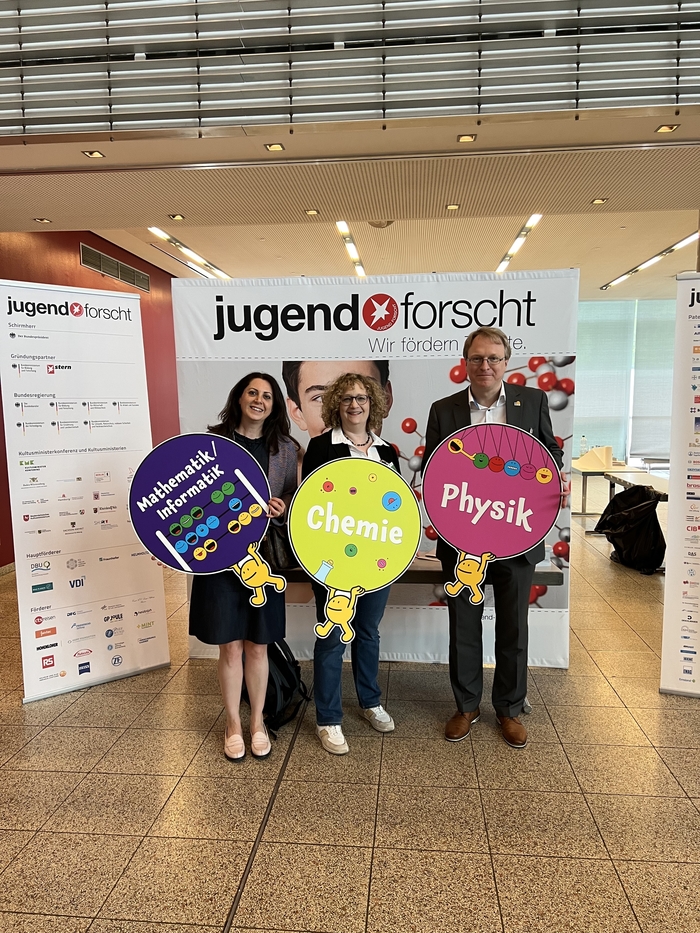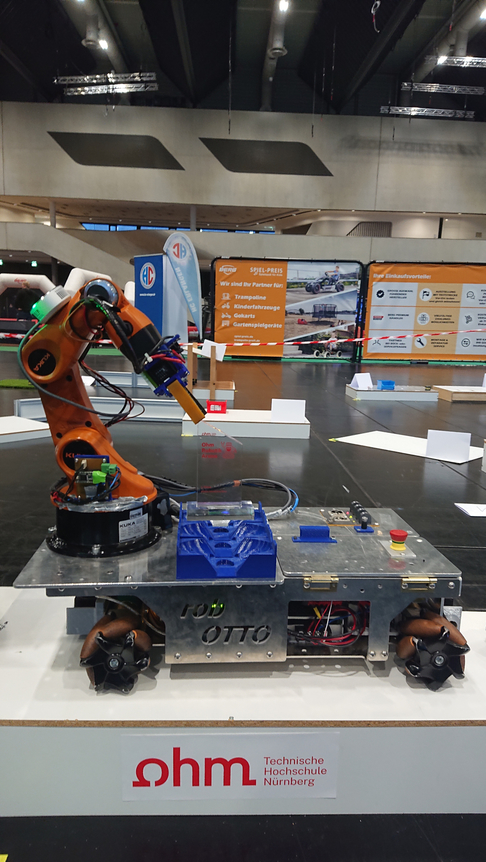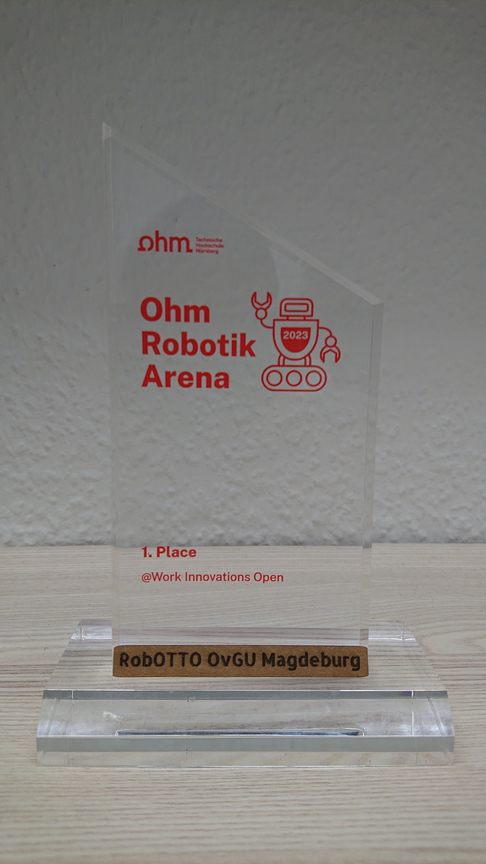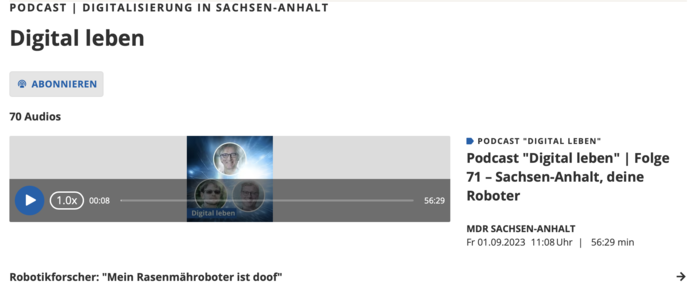News
Code on Zenodo
You can find our codes on Zenodo: https://zenodo.org/communities/ci-ovgu/records?q=&l=list&p=1&s=10&sort=newest
Some of them are still available here: CODES
Research Visit from Japan
It was a great pleasure to host Ryunosuke Tazawa as a PhD Guest from Japan Institute of Science and Technology. Ryu was part of the team for one year.
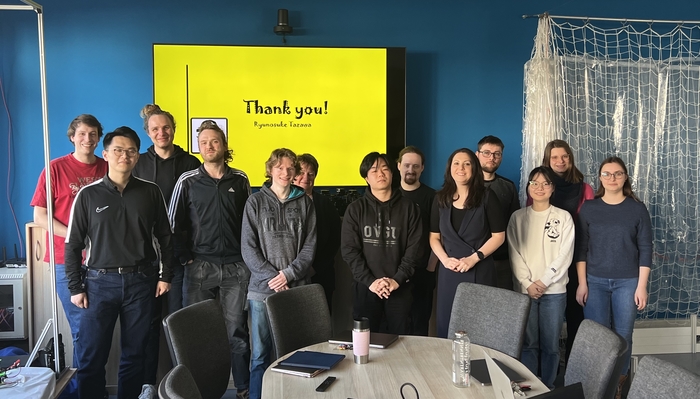
Research Collaboration with Tierärztliche Hochschule Hannover
Research meeting with project partners from Tierärztliche Hochschule in SwarmLab. Happy to host Whiskey as part of the project.
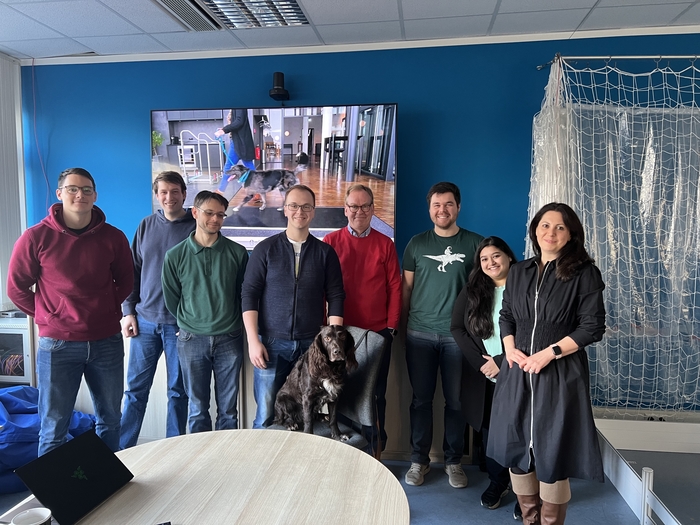
Christmas 2023
Finally, Christmas 2023! Wishing everyone happy holidays, a merry Christmas and all the best for a happy, healthy and successful new year 2024.
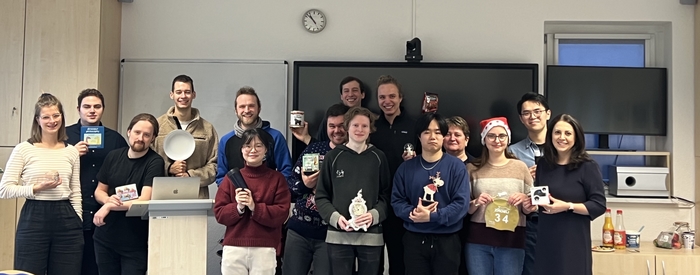
SSCI 2023
Team Magdeburg at IEEE Symposium Series on Computational Intelligence in Mexico with three papers.
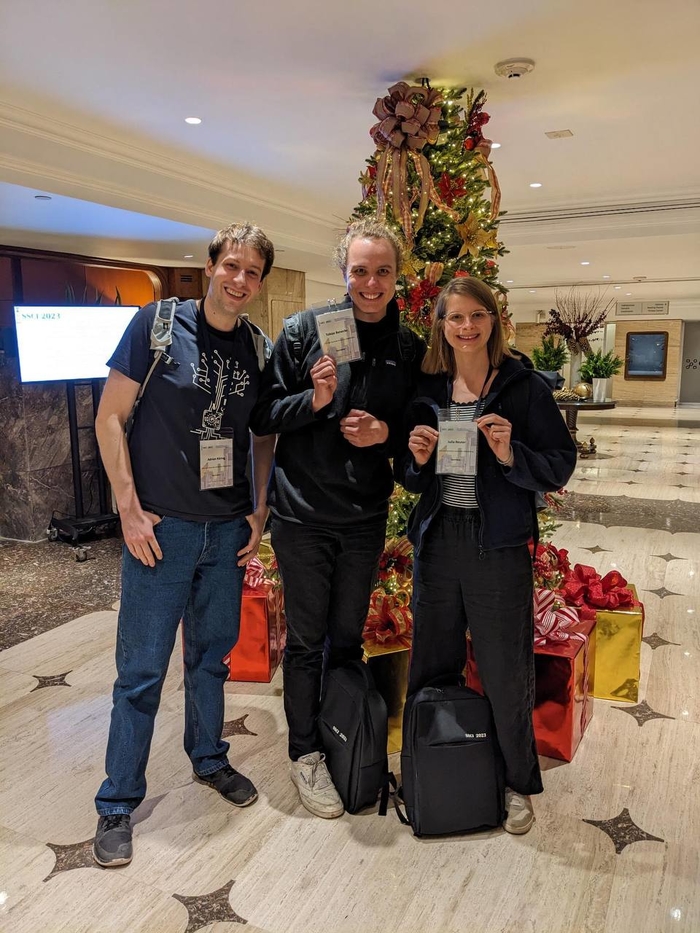
robOTTO at Consumenta 2023
Our RoboCup@Work team “robOTTO” participated in the 1st @Work Innovation Open in Nuremberg, embedded into the Consumenta Fair 2023. The team dominated their competition and finished first after four competition runs. Additionally, the team won the navigation challenge with a time of two minutes for navigating the arena. This is even more impressive considering that the team was only present with four team members because right now, lectures are going on, which collided with the competition.
|
|
|
Christoph as AI-Talent Young Scientist Group Leader
Christoph Steup is part of the AI-Talent Program funded by the German Federal Ministry of education and research (BMBF). As a Young Scientist Group Leader, he is leading the working group Computational Intelligence in Robotics (CIR):
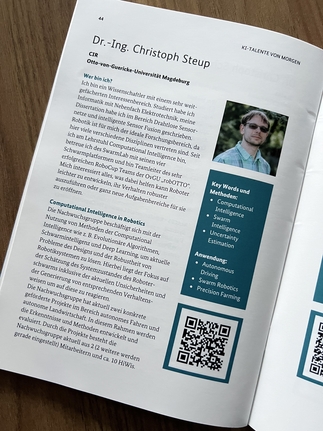

Christoph in the MDR Podcast
Listen to the podcast "Digital Leben" about robotics and intelligent systems by Christoph:
https://www.mdr.de/mdr-sachsen-anhalt/podcast/digitanhalt-102.html
PhD Defense Mahrokh Javadi
Mahrokh successfully finished her excellent PhD about "Novel Evolutionary Approaches for Multi-Modal Multi-Objective Optimization problems"! Congratulations!
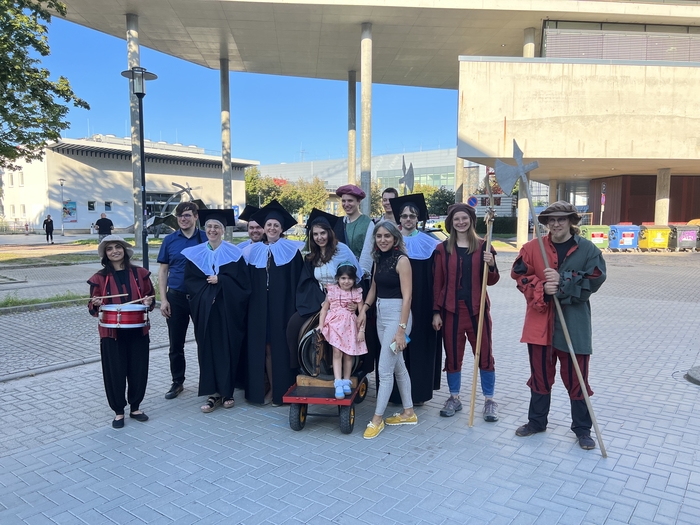
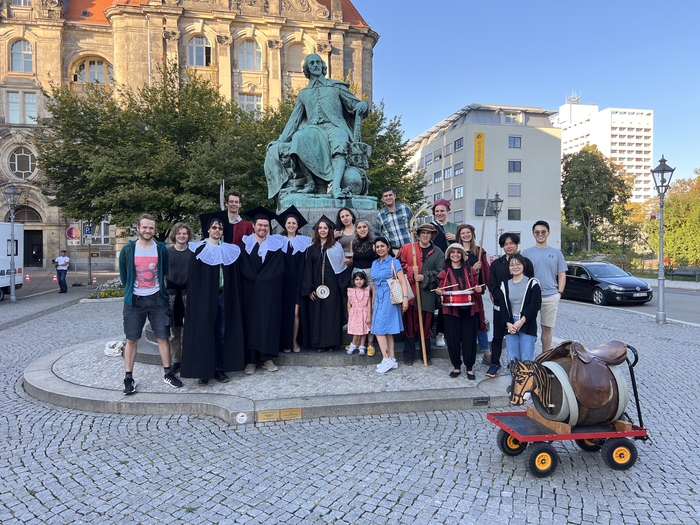
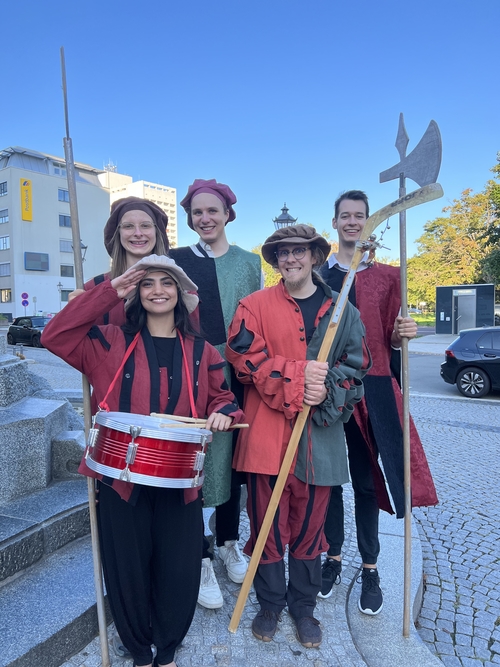
Ege Yüceel's Internship in SwarmLab
Ege Yüceel (undergraduate from Bilkent University, Ankara, Turkey) was part of SwarmLab's team for an internship from June to September 2023. It was a pleasure to work with him and hope to host him again!
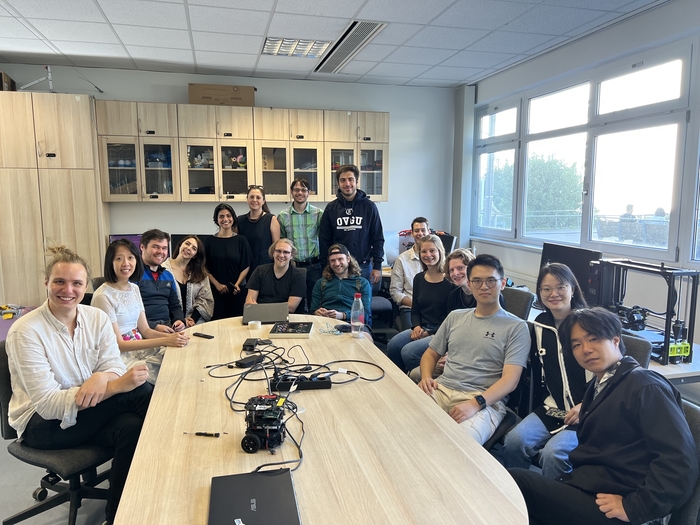
Prestigious EUSFLAT Award 2023 for Prof. Kruse
Very pleased to announce that Prof. Kruse has received the prestigious Scientific Excellence Award 2023 of the European Society for Fuzzy Logic and Technology (EUSFLAT).
EUSFLAT has bestowed its 2023 Scientific Excellence Award upon Rudolf Kruse "for his outstanding contributions to the theory and implementations of analyses of uncertainty and imprecision in processes and systems ". The nomination committee consisted of all previous awardees and EUSFLAT presidents. Kruse is only the ninth researcher to receive this Lifetime Achievement Award. The award ceremony took place in Palma de Mallorca on September 7, 2023.
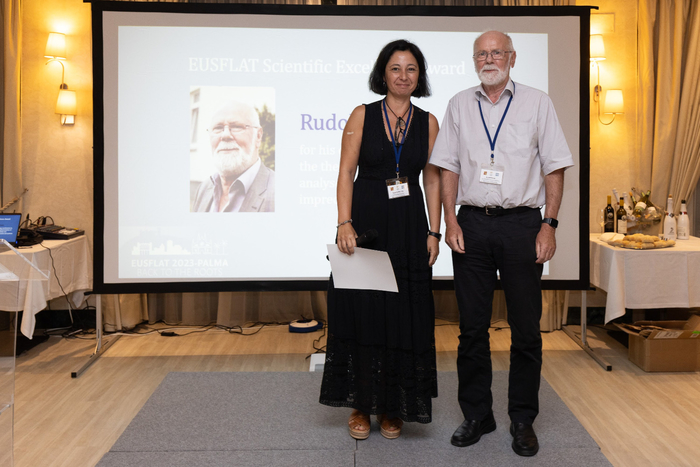
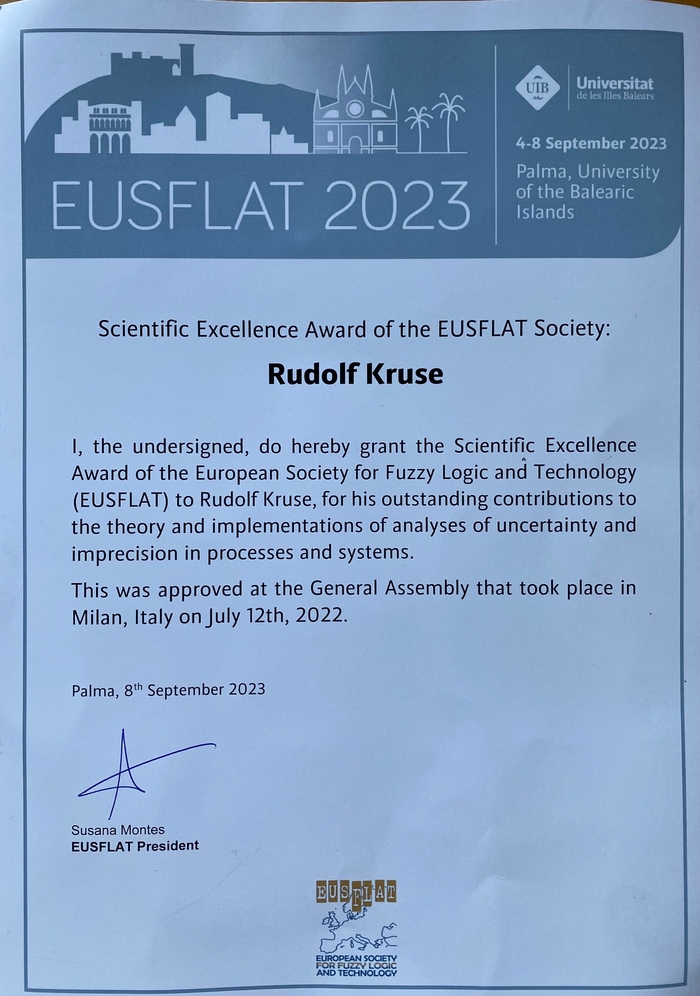
Cognitive Vitality
CI chair is part of the Cognitive Vitality Initiative. As one of the leaders of Data Science and Computational Modelling (DECODE) platform, we contribute to the important missionof "A healthy mind in every body".
More information:
https://cognitive-vitality.de/en/
New ZIM Project: Aim-FarmRob - Aimess Intelligenter Farm Roboter
A new ZIM Project Aim-FarmRob "Aimess Intelligenter Farm Roboter" has been approved.
Description (in German):
Das Projekt Aim-FarmRob unter Projektleitung von Dr. Christoph Steup dient der Entwicklung und Fertigung eines Prototyps für eine variable autonome KI-gestützte Roboterplattform für landwirtschaftliche Zwecke. Der Roboter dient dazu, arbeits- und damit kostenintensive Prozesse der Landwirtschaft zuverlässig zu automatisieren. In der ersten Stufe der Entwicklung wird der Roboter in der Lage sein, autonom auf vorher festgelegten Feldern Bodenproben zu nehmen, um die Planung der Bewirtschaftung und das Ausbringen von Düngemittel zu optimieren. Zu diesem Zweck kooperieren die Aimess GmbH Burg mit dem Lehrstuhl Computational Intelligence der Otto-von-Guericke Universität. Die Aimess GmbH konstruiert und fertigt den Roboter und entwickelt die Low-Level Software, während der Lehrstuhl CI die High-Level Software und die KI-Komponenten entwickelt. Die KI-Komponenten in dieser Entwicklungsphase dienen der Erkennung von Pflanzreihen und die Bewertung des Wuchszustandes sowie der Verbesserung der Lokalisierung des Roboters, um maximal zuverlässige Positionsinformationen für die Bodenproben und zukünftige Module zur Verfügung zu stellen.
RoboCup 2023 in Bordeaux
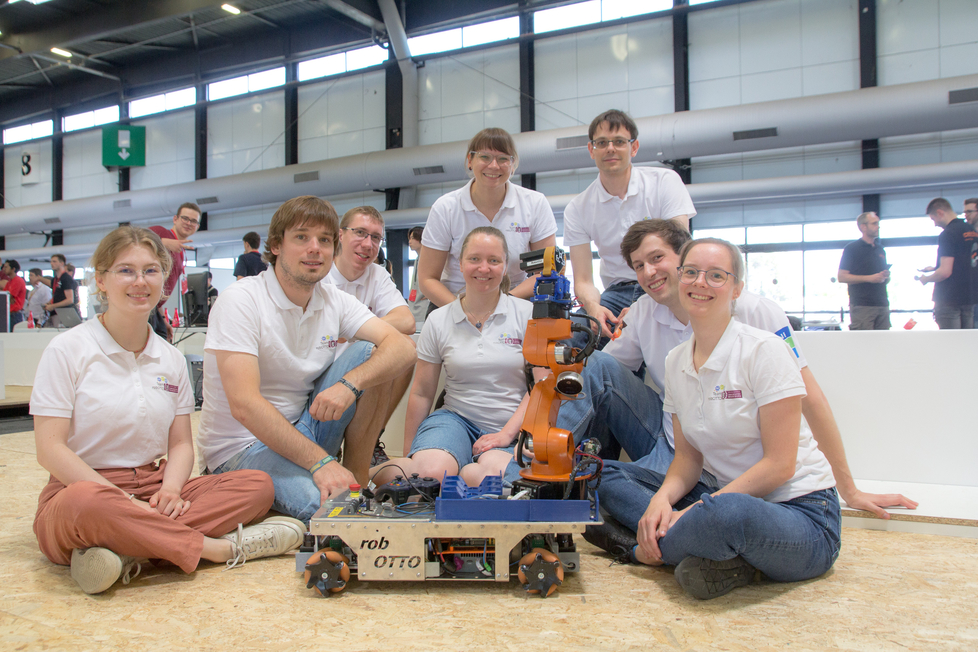
An exciting week full of thrilling competitions, technical innovations and friendly atmosphere took place in Bordeaux, France, from June 4 to 10, 2023. At RoboCup 2023, teams from all over the world competed in various leagues with their robots, some of which were autonomous. In the RoboCup@Work league, which focuses on the use of robots in industrial environments, team robOTTO from Otto von Guericke University Magdeburg came out on top and secured third place (2nd place - team SWOT from Schweinfurt, 1st place - team b-it-bots from Bonn-Rhein-Sieg University of Applied Sciences) - an impressive result achieved despite some challenges. Additionally, the team won one of the two challenge awards.
The RoboCup@Work league focuses on the use of autonomous robots in industrial scenarios. The robots navigate autonomously in partially known environments and perform manipulations on industrial objects. This is intended not only to showcase the current state of robotics for potential industrial applications, but also to give students and researchers the opportunity to apply their theoretical knowledge in practice. The competition consisted of six heats, three of which included basic tasks that served as the basis for the three advanced heats.
The RoboCup@Work league focuses on the use of autonomous robots in industrial scenarios. The robots navigate autonomously in partially known environments and perform manipulations on industrial objects. This is intended not only to showcase the current state of robotics for potential industrial applications, but also to give students and researchers the opportunity to apply their theoretical knowledge in practice. The competition consisted of six heats, three of which included basic tasks that served as the basis for the three advanced heats.
In addition to the competition, Team robOTTO was actively involved in the organization, modification of the rulebook, and public relations - a unique feature of most RoboCup leagues, where the teams organize the league themselves.
The challenges that team robOTTO faced added to the excitement of the competition. Navigating the robot proved difficult at first, as the environment in Bordeaux was different than expected. The uneven and moving floor of the arena posed a challenge for all teams and caused problems in locating the robots. In addition, team robOTTO reached its limits with its older robot arm, especially in terms of speed. The integration of a new arm is planned for next year to address these challenges.
A total of seven teams from Germany, the Netherlands and Singapore took part in the competition. The friendly atmosphere between the teams, who exchange ideas throughout the year, was palpable during the competition days. RoboCup 2023 is not only a competition, but also a place for exchange and networking. In addition to the actual competitions, various evening events gave teams the opportunity to get to know each other better and share experiences. The highlight of the event was an atmospheric farewell party.
As the teams return home and review their experiences, they are already looking ahead to next year. RoboCup 2024 will be held in Eindhoven, the Netherlands, and promises to once again be a stage for groundbreaking technology and competitive spirit. The @Work league will be represented by the host team from Eindhoven, Team RoboHub. Not only will they experience the challenges and excitement of competition, but they will also be responsible for creating a welcoming and inspiring atmosphere for teams from around the world.
Between now and next year in Eindhoven, teams will be working hard to develop their robots, explore new technologies and prepare for the challenges ahead. RoboCup 2024 will undoubtedly provide another opportunity to push the boundaries of robotics and share the excitement of autonomous action in industrial environments.
Bronze Humie Award @GECCO 2023
We received the 2023 Humies Bronze Award!!!
HUMAN COMPETITIVE RESULTS AWARDS (20th Annual "HUMIES")
Presented at the Genetic and Evolutionary Computation Conference (GECCO), July 15-19, 2023, Lisbon, Portugal
For our work: Julia Reuter; Hani Elmestikawy; Sanaz Mostaghim; Berend van Wachem; Fabien Evrard; Manoj Cendrollu, Towards Improving Simulations of Flows around Spherical Particles Using Genetic Programming
German: Im Juli 2023 nahm der Lehrstuhl für Computational Intelligence mit dem Eintrag von Julia Reuter mit dem Titel „Identifying Symbolic Models für Particle-Laden Flows“ am 20. Jährlichen ACM SIEGEVO HUMIES Wettbewerb teil und bekam den mit 1000 USD dotierten Bronze Award verliehen. Wir freuen uns sehr über diese Auszeichnung!
Der ACM HUMIES Award wird verliehen an Publikationen, die durch genetische und evolutionäre Programmierung Ergebnisse erzielt haben, die „human-competitive“ sind, also die genauso gute oder bessere Resultate bei der Lösung eines Problems erreichen wie ein Mensch. Die von uns eingereichten Publikationen entstanden in einem gemeinsamen DFG-Projekt den Lehrstühlen von Prof. Mostaghim (FIN) und Prof. van Wachem (FVST). Der Wettbewerb wurde während der GECCO Konferenz 2023 in Lissabon ausgetragen. Aus insgesamt 19 Bewerbungen wurden acht Einträge ausgewählt. Diese konnten im Finale in einer zehnminütigen Präsentation die Jury, bestehend aus anerkannten Expert:innen des Forschungsgebiets, von der Qualität ihrer Arbeit überzeugen.

Firmen Staffellauf 2023
SwarmLab was part of the Firmen Staffellauf 2023. Well-done SwarmLab!!
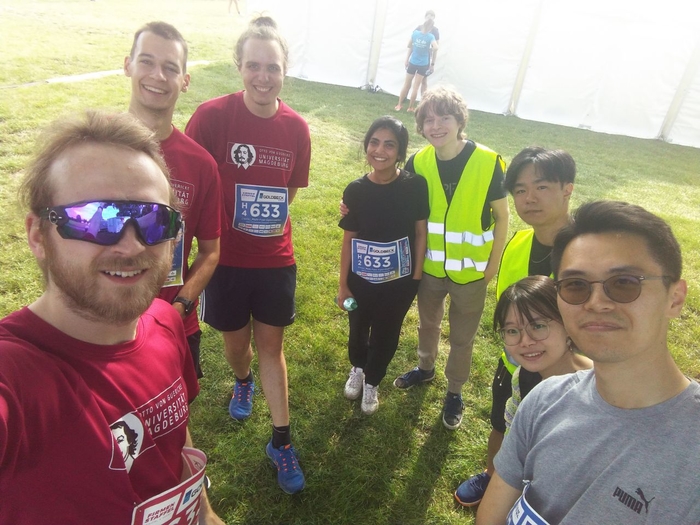
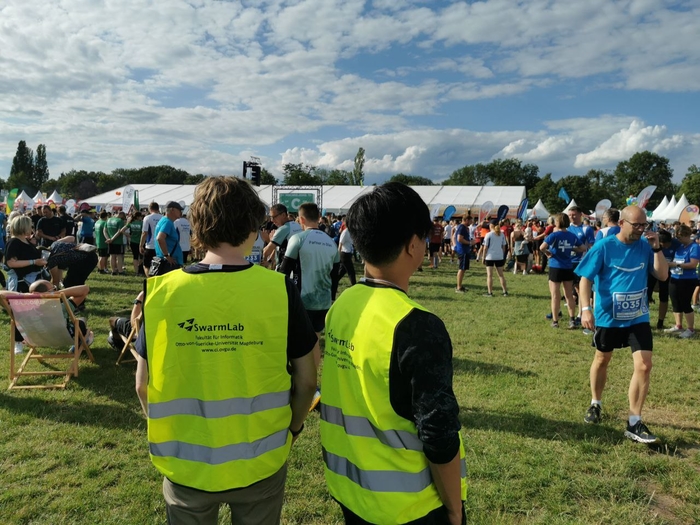
Best Poster Award at IEEE Conference on AI
We received the best poster award for the paper:
- Thomas Seidelmann and Sanaz Mostaghim
- Surrogate Functions and Digital Twin Simulation for Modern Facility Layout Planning
- Accepted at IEEE Conference on AI 2023
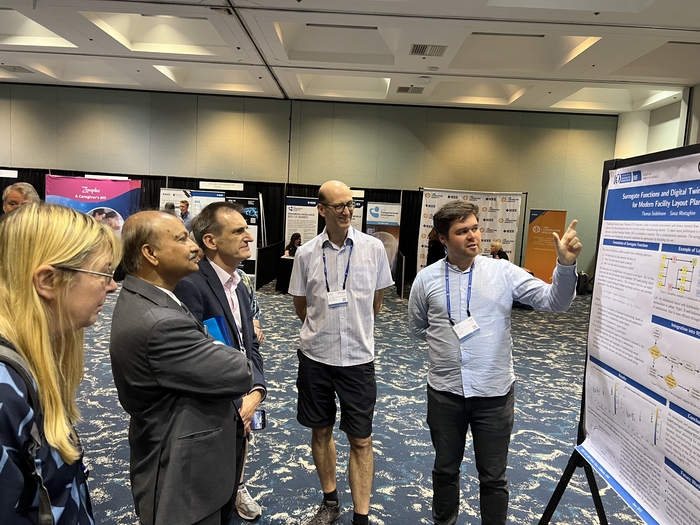
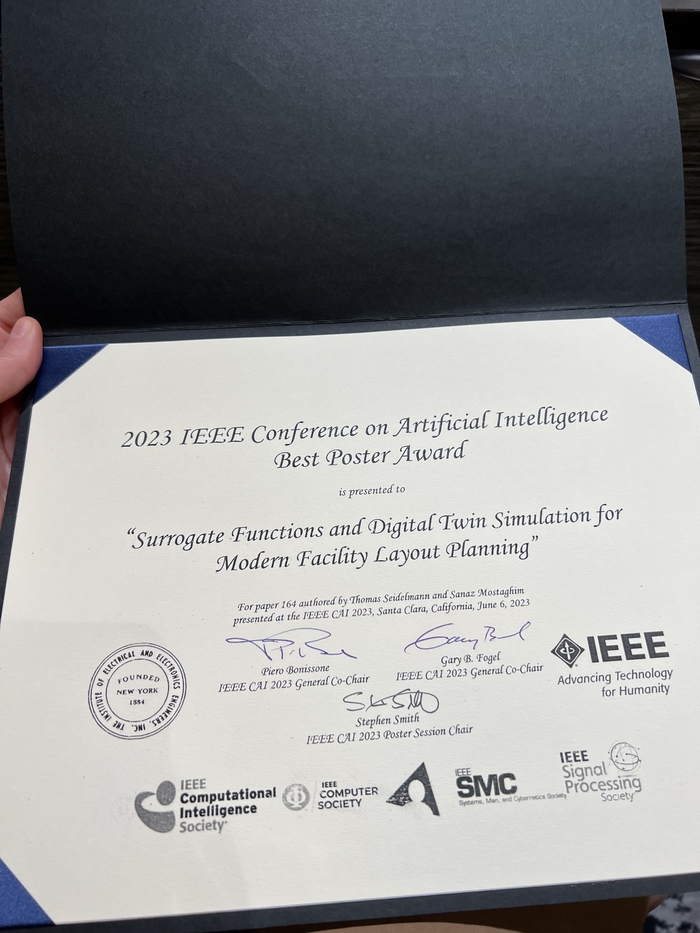
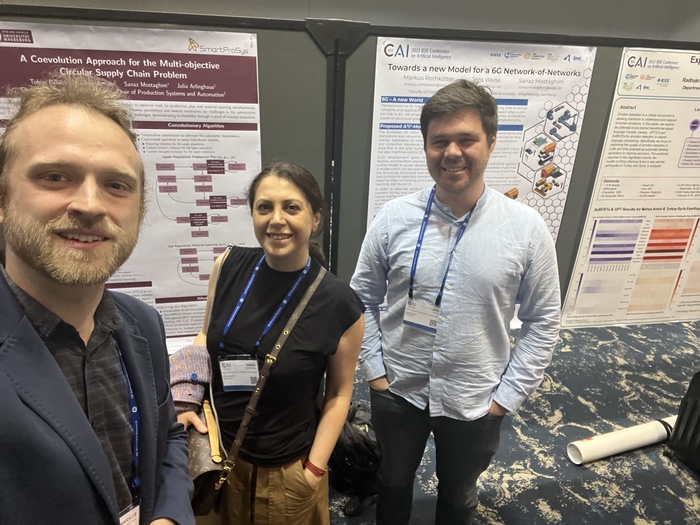
Kickoff Meeting of DFG project WSAM
The DFG project WSAM (Wide Synthetic Aperture Sampling
for Motion Classification) officially started in a kickoff meeting at DLR Oberpfaffenhofen in Munich. Already looking forward to a fruitful project together with our cooperating partners from Linz University and DLR:
Interview Saxon Academy of Sciences
Take a closer look at Sanaz's Portrait at SAW:
Jugend Forscht 2023
It was a great pleasure to be part of the Bundesjury for Jugend Forscht (https://www.jugend-forscht.de/) 2023, which took place from May 18 to 21 in Bremen.
Spending time with very intelligent young students and discussing their ideas was really great! The motto "Mach Ideen Groß" is the foundation for anything we do in science.
